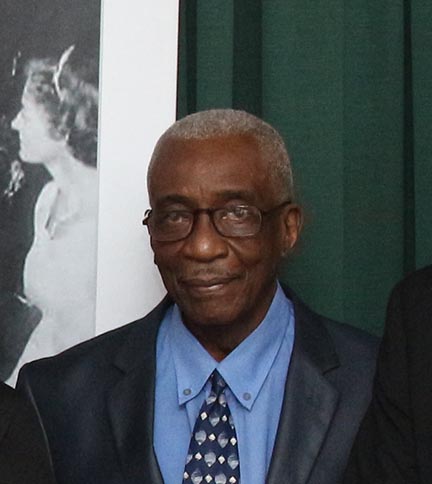Although noting that his recent appointment prevents him from speaking definitively, Guyana Elections Commission (Gecom) Chairman Justice (retired) James Patterson says that he does not see the entity’s procurement practices as a major issue.
Patterson also told Sunday Stabroek during an interview last week at his High Street, Kingston office that no decision has been taken by the commission on responding to the final reports compiled by Auditor General Deodat Sharma on the purchase of radio sets, the acquisition of ink toners and cartridges and the procurement of 2,400 nippers/pliers in 2015, which exposed serious breaches of procurement rules at the entity. These include apparent contract splitting, the supply of goods before a contract was signed and in one case the appearance of a fake quotation purporting to come from a company interested in supplying radio sets.
Gecom’s Chief Election Officer (CEO) Keith Lowenfield has since maintained that the entity did not deviate from procurement rules in the acquisition of items ahead of the 2015 general elections.
Patterson said that given that he is “new” to the post, he cannot comment definitively on the matter of procurement practices. “But I don’t see that as a large issue,” he stressed, while informing that this particular issue has not been a subject of discussion.
Patterson was furnished with copies of the reports.
A special investigation by the Office of the Auditor General into Gecom’s purchase of 50 radio sets for the 2015 general elections revealed procurement breaches among a host of other problems and a recommendation was made for the police to be called in for an in-depth probe and criminal charges if necessary.
The sets, costing $99.5 million, were taken possession of just days before the May 11th, 2015 general elections and up to September 14th, last year, 88% of the sets were not yet in use. The administrative procedures employed by Gecom for the purchase of the sets appeared to favour of contractor Mobile Authority, although another interested supplier had the most responsive bid.
Though it had proceeded to procure the 50 radio sets from Mobile Authority, Gecom then entered another arrangement with the United Nations Development Programme for the supply of 12 satellite phones on the grounds that “security reasons” prevented the use of the 50 radio sets on election day, Sharma’s final report said. This special investigation had its genesis in August, 2016, when the audit office’s team noticed discrepancies as it related to the purchase of High Frequency (HF) radios. The matter was drawn to the attention of Sharma, who instructed that a special investigation be done covering the period January 1st, 2015 to December 31st, 2015.
According to the report on the procurement of ink toners and cartridges, the special investigation revealed that 11 contracts for the supply of the items, worth $101.6 million, were awarded to the same supplier but were apparently split by Gecom to avoid Cabinet scrutiny. The report cited instances where the items appeared not to have been needed and contracts being signed after the supply of goods. It was recommended that the police be called in for a deeper examination and for criminal charges to be brought where necessary in relation in this particular matter.
Meanwhile, the report regarding the acquisition of the nippers states that the special investigation found that 2,400 nippers/pliers, which were procured by Gecom, were delivered on April 23rd, 2015, five days before the contract was signed. It concluded that $3 million could have been saved if Klein pliers were bought instead.
Last October, Sharma gave Lowenfield a one-month deadline to respond to the final reports, while noting that they were sent to him because he is responsible for looking at the findings and taking appropriate action, including calling in the police if it is found to be necessary, as was recommended. He had said that while the reports would also go to the commission chairman, it was the responsibility of the CEO to act on them as he is Gecom’s accounting officer. At the time, there was no commissioner.
Sharma had made it clear that the accounting officer was the one responsible for addressing any irregularities, according to his appointment. As a result, he was hopeful that within a month Lowenfield would get back to him to say “whether or not he agrees with the findings.”
Asked last Wednesday whether he had responded to the recommendations made by Sharma, Patterson said he had not. He pointed out that the Auditor General “has his own way to go if there’s no response from the commission.”
He stressed that it is up to the commission to determine whether a response to the findings and recommendation will be given. “I am not [a] Gecom commissioner,” he said, before adding that no decision had been made with regards to what steps will be taken about the recommendations in the report. “That has not been determined as far as I know,” he added. He could not say if such a decision will be made in the near future.
Sharma previously expressed hope that Patterson’s appointment would propel the delivery of responses from Lowenfield.






